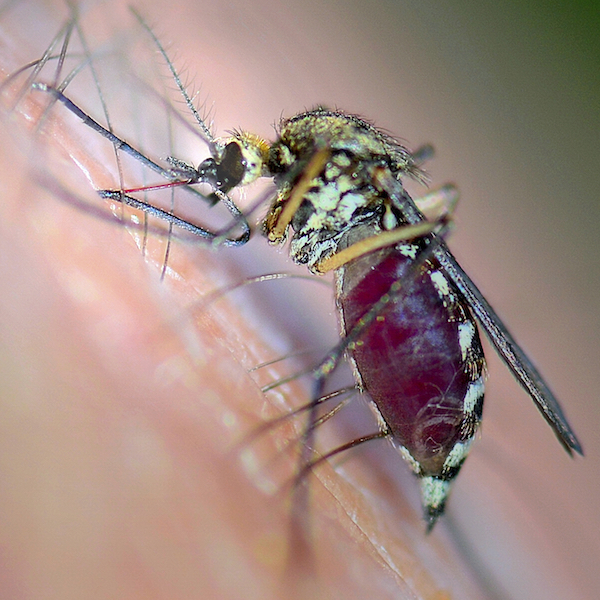
Zika virus is carried by the aedes species mosquito (A. aegypti and A. albopictus), which are prevalent in Corpus Christi. So far, the virus has not been detected in the area.
Corpus Christi Vector Control will begin sending live captured mosquitos to Austin to be tested for the Zika virus as of April 1. Mosquito season runs from April 1 to Nov. 1 — at least according to the state bureaucrats who handle the testing.
“In South Texas, mosquito season can be year-round,” said Capt. Chris White of the Corpus Christi Police Department, who is in charge of Vector Control.
The city is already conducting daily mosquito counts as part of its program to monitor and control the pesky flying pest population.
Zika virus is spread to humans through bites from infected Aedes species mosquito, the aedes aegypti and aedes albopictus. Symptoms include fever, rash, joint pain and conjunctivitis. Normally a mild illness, it can last for several days to a week.
Although not fatal, Zika has been linked to a serious birth defect of the brain in newborn babies called microcephaly. Babies with this disease are born with larger than normal heads, hearing and vision deficits and poorly developed brain structures.
Except for the threat to fetuses, the virus is not as big a health concern as West Nile, another mosquito-borne disease monitored by Vector Control annually.
“The mosquito that carries the Zika is different than the one that carries West Nile,” White said. “We had to purchase new traps for Zika. We’ve been testing for West Nile for years now.”
If Zika is detected in a mosquito, certain protocols begin instantly. Additional traps will be set up in a one-block perimeter of where the Zika-infected mosquito was found. City workers will go door to door notifying residents of the findings and offering advice on how to prevent mosquito bites.
Most important, the city will begin nightly aerosol spraying as the monitoring continues.
“We won’t spray unless we get a detection,” White said. “What we’ve discovered is that if we continue to spray and repeatedly spray for containment of pest mosquitos, they can build up a tolerance, and the spraying is no longer effective.”
West Nile was detected last year, and the city did spray specific neighborhoods, including areas in Flour Bluff and around Six Points.
Preventing mosquito breeding is as important as avoiding bites, White said. Vector Control recommends inspecting yards for standing water that creates active breeding grounds. Many female mosquitoes lay 100-300 eggs on the surface of fresh or stagnant water every third night during their life span. A few tips on eliminating potential mosquito breeding sites around the home include:
• Do not allow water to accumulate in the saucers of flowerpots, cemetery urns or in pet dishes for more than two days.
• Get rid of tin cans, old tires, buckets, unused plastic swimming pools or other containers that collect and hold water.
• Clean debris from rain gutters, remove standing water from flat roofs and repair leaks around faucets and air conditioners.
• Change the water in birdbaths and wading pools at least once a week.
• Fill or drain puddles, ditches and swampy areas.
• Check for trapped water in plastic or canvas tarps used to cover boats or pools and arrange the tarp to drain the water.
Bug bite prevention is as easy as the four Ds, White said, which is explained simply in the many brochures handed out around the city during mosquito season. They can also be found on the Corpus Christi Police Department’s website at ccpolice.com.
The 4 Ds are:
1. Use insect repellent containing DEET, picaridin or oil of lemon eucalyptus.
2. Dress in long sleeves and long pants when outside.
3. Stay indoors at dusk and dawn, when mosquitoes are most active.
4. Drain standing water where mosquitoes breed. Common breeding sites include old tires, flowerpots and clogged rain gutters.
White stressed that Zika is not a threat to the area and all monitoring is precautionary.
“The Zika that is in the U.S. is coming here from persons coming from other countries,” he said. “There has not been a U.S.-based case yet. You don’t need to worry about it. We are watching for it.”
The mosquito that carries the Zika virus has been in the area a long time, he added, just another of the 175 different species of biting insects commonly found in the Coastal Bend.





